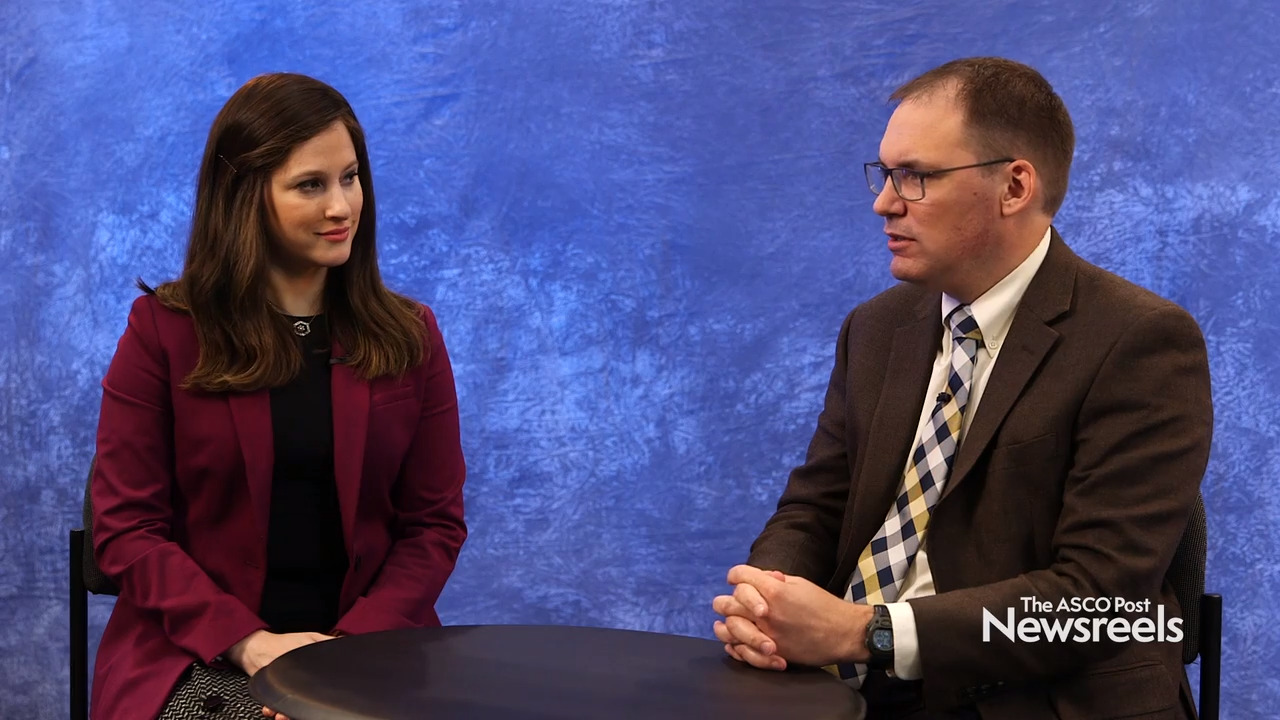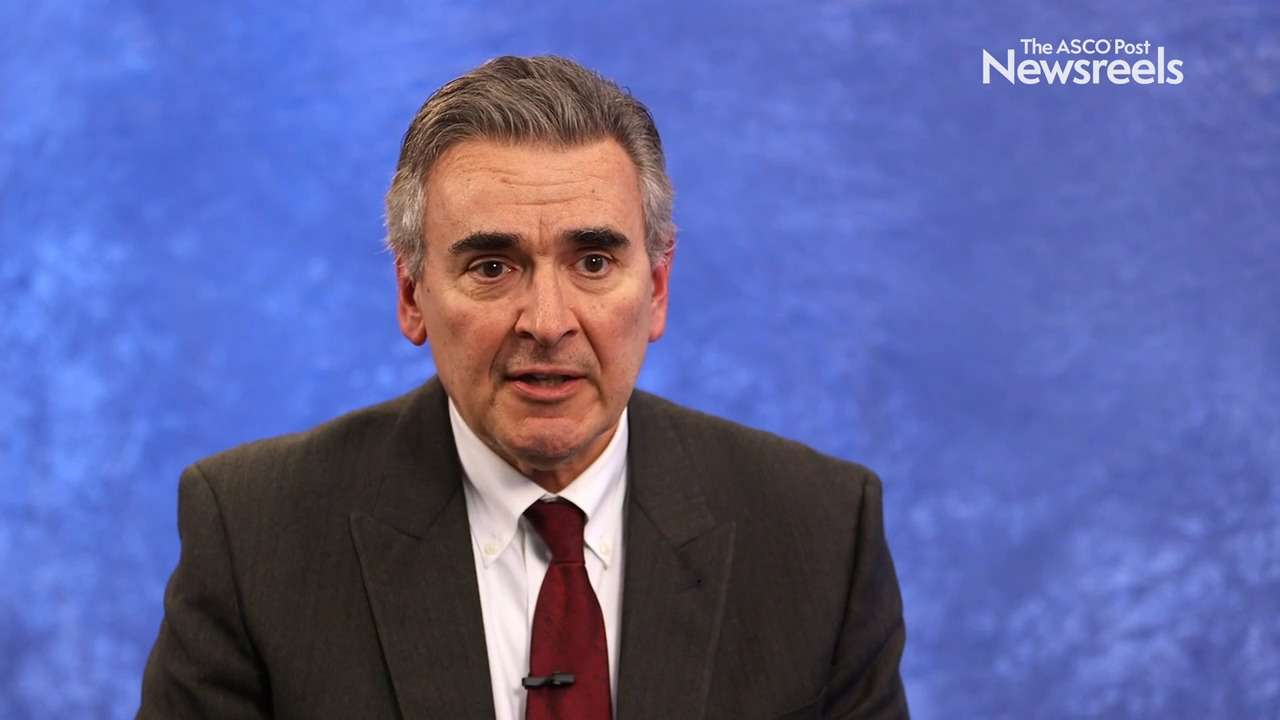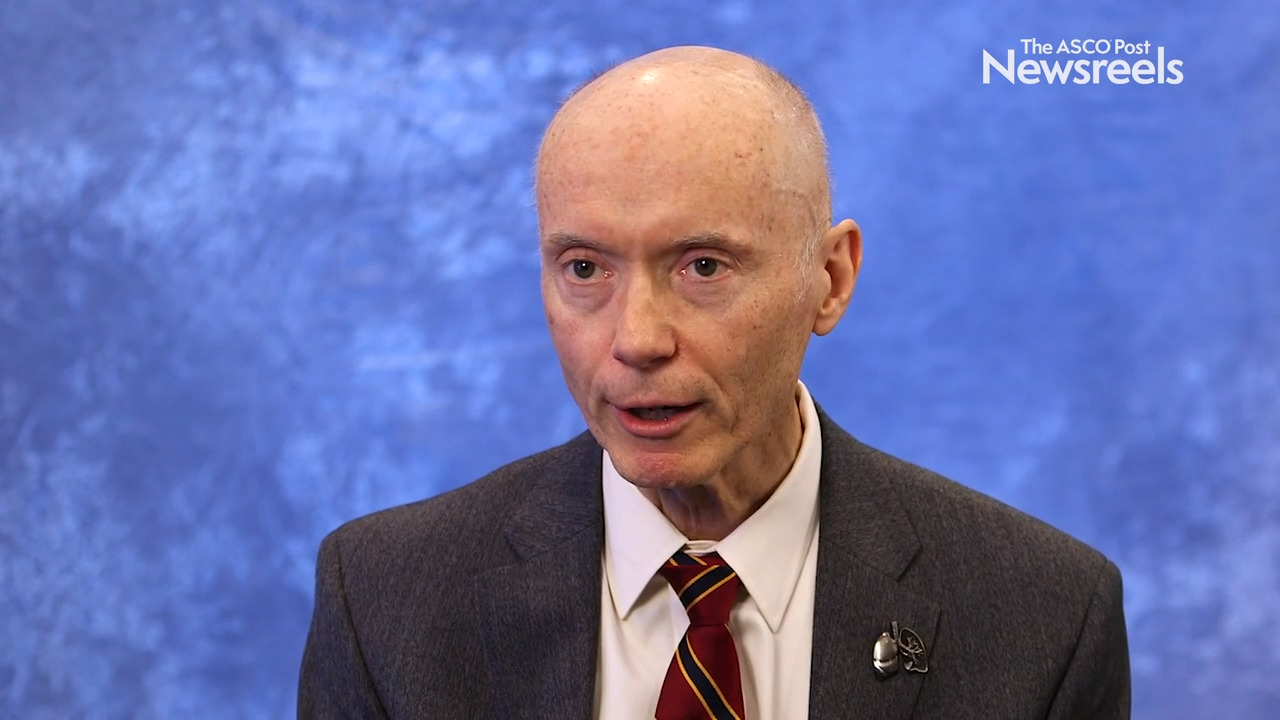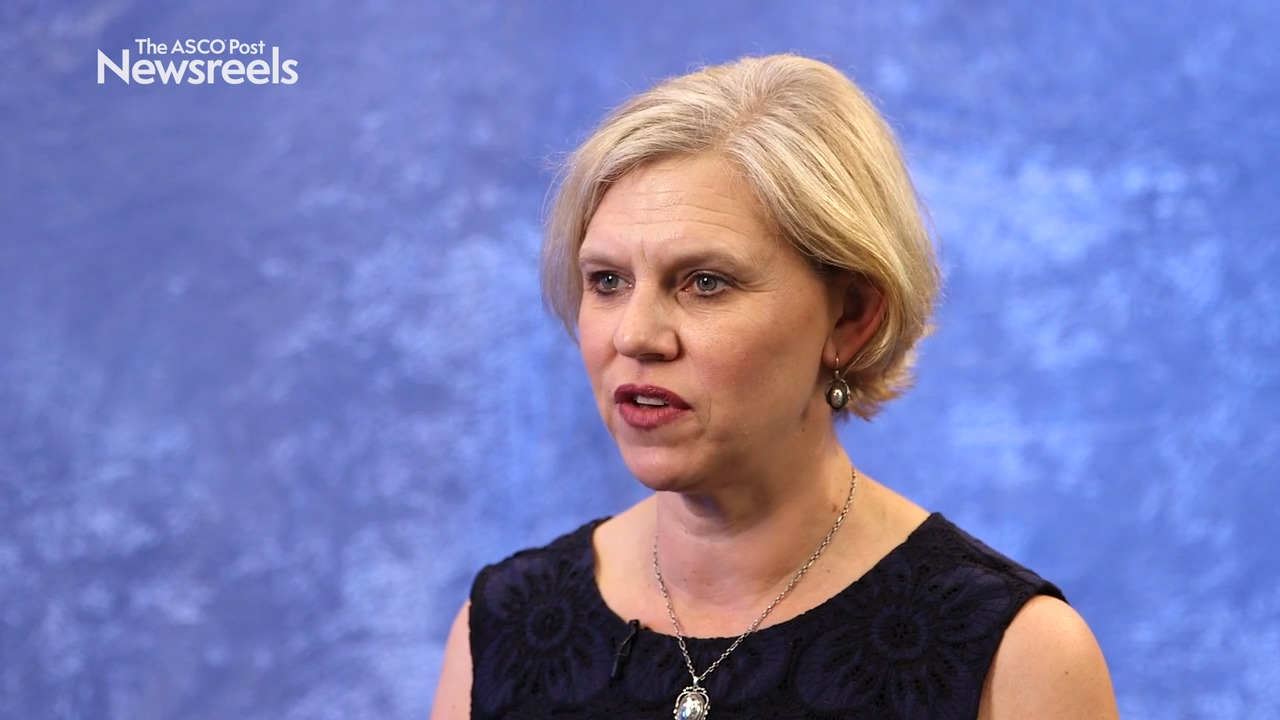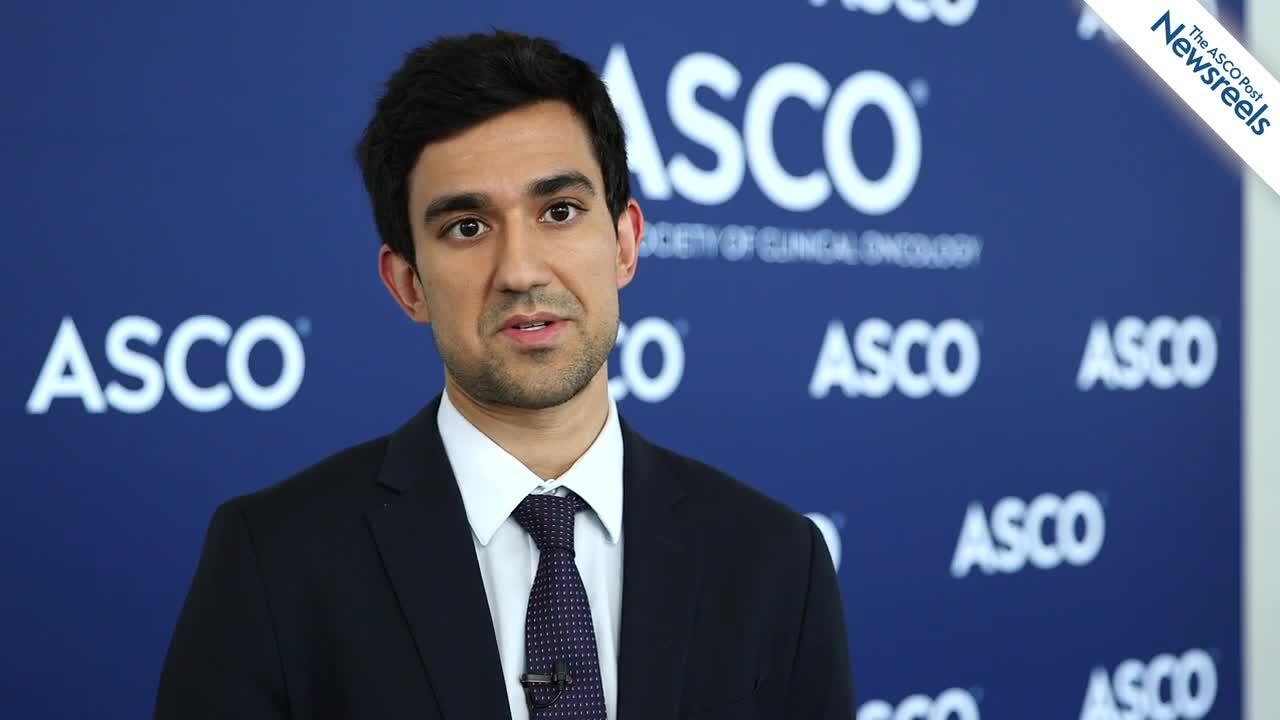Richard L. Schilsky, MD, and R. Donald Harvey, PharmD, BCOP, on Advanced Non–Small Cell Lung Cancer: Expanding the Criteria for Clinical Trial Eligibility
2019 ASCO Annual Meeting
Richard L. Schilsky, MD, of ASCO, and R. Donald Harvey, PharmD, BCOP, of Winship Cancer Institute of Emory University, discuss their study findings that expanding the clinical trial eligibility criteria for patients with advanced NSCLC would enable nearly twice as many people to be considered for participation (Abstract LBA108).
Miriam Knoll, MD, and Zachery Reichert, MD, PhD, discuss the FORCE trial, which is examining whether radiation can create a more durable response to systemic therapy, and whether using newer, more sensitive imaging technologies can improve outcomes (Abstract TPS5096).
Joseph A. Sparano, MD, of the Montefiore Medical Center and Albert Einstein Cancer Center, discusses how clinical risk stratification provides additional prognostic information to the 21-gene recurrence score and may be used to identify premenopausal women for more effective antiestrogen therapy (Abstract 503).
David J. Kwiatkowski, MD, PhD, of Brigham and Women’s Hospital and Dana-Farber Cancer Institute, discusses an interim analysis and biomarker data from a multicenter study showing that 19% of patients with NSCLC had a major pathologic response to preoperative treatment with atezolizumab (Abstract 8503).
Yoland C. Antill, MD, of Cabrini Health, discusses phase II data on the effect of durvalumab, a PD-L1 inhibitor, as a single agent in the setting of recurrent or advanced endometrial cancer. Her research compares the response in mismatch repair–deficient and –proficient tumors (Abstract 5501).
Kamran A. Ahmed, MD, of the H. Lee Moffitt Cancer Center and Research Institute, reports on a trial in progress that is investigating whether treatment with atezolizumab plus hypofractionated radiation therapy will improve the objective response rate compared with atezolizumab alone in patients with recurrent, persistent, or metastatic cervical cancer (Abstract TPS5596).
